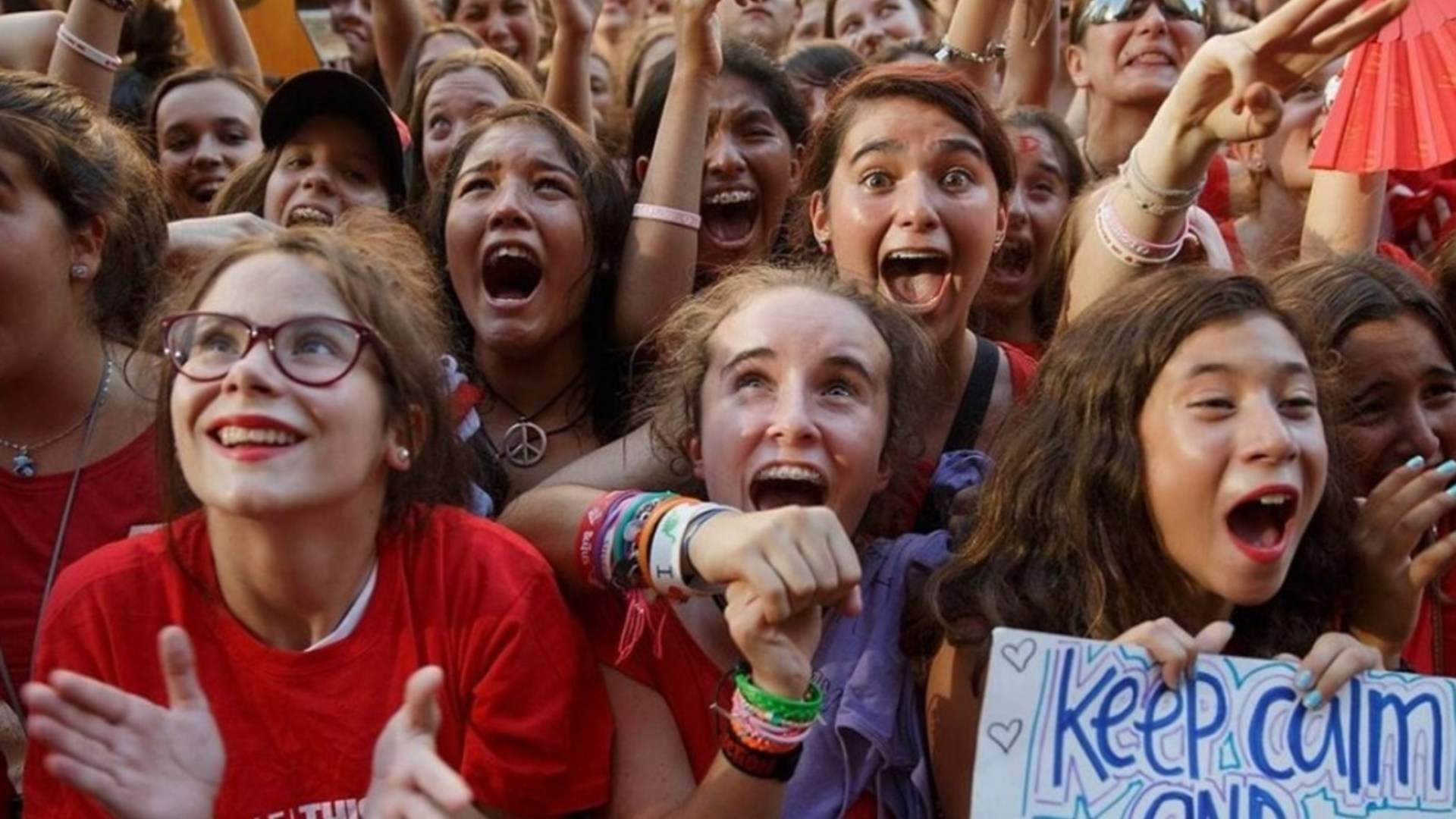I Used to Be Normal: A Boyband Fangirl Story
An insightful ode to the joys of pop culture fandom, with plenty of boy band songs on the soundtrack.
Overview
UPDATE, August 15, 2020: I Used to Be Normal: A Boyband Fangirl Story is available to stream via DocPlay, Google Play, YouTube and iTunes.

For many teenage girls, love has a name. It's not their schoolyard crush, or that boy who keeps teasing them in class. Depending on the decade, it's Harry Styles, Nick Carter, Robbie Williams or Paul McCartney. Their great loves sing to them, stare back at them from posters on their walls, and soulfully look their way at packed-out concerts. They croon tunes about holding hands, wanting them back and inner beauty, and — crucially — declare they'll never break any hearts.
Whether it's The Beatles in the 60s, the Backstreet Boys in the 90s or One Direction earlier this decade, such is the power of boy bands. Many come together in the most calculated of manners, specifically engineered to appeal to as many swooning girls and sell as many records as possible. But the sentiments they're uttering feel real to their fans. Take 16-year-old Long Island resident Elif, for example. When she talks about One Direction, her face could light up Zayn Malik and company's world like nobody else. She screams at their videos, calls them "the boys" like they're kids that she goes to school with, and bursts into tears when a friend suggests that a band member might deliver their pizza.
Alongside 25-year-old San Francisco journalist Sadia, 33-year-old Sydney band strategist Dara and 64-year-old Melbourne TV producer Susan, Elif is one of four boy band aficionados featured in I Used to Be Normal: A Boyband Fangirl Story. Each has fallen hard for a different group and it's changed their life, with the documentary exploring, analysing and celebrating their fandom. Well aware that loving a boy band is so often seen as the domain of silly young girls, filmmaker Jessica Leski examines the phenomenon with joy, affection and irreverence, and with an open heart and mind. She knows a thing or two about the topic herself, having become a devoted Directioner at the age of 31.
Cue a delicate balancing act, but one that I Used to Be Normal manages with the skill of a carefully choreographed *NSYNC dance routine. As the bright, upbeat, quick-paced film delves deep into its subjects' thoughts, emotions, hopes and desires, it also dissects the broader allure of manufactured male pop groups and the catharsis they can offer. Dara gives viewers a Boy Band 101 lesson to help cover all angles, however its her own personal story — and Elif, Sadia and Susan's too — that comprises the beating heart of the doco. Set to an appropriate soundtrack, their love of cute men belting out pop ballads is always intimate and genuine, and handled with thoughtfulness and insight.
For Turkish immigrant Elif, One Direction connects her to her adopted country and helps unleash her dreams of becoming a musician. Growing up in a conservative Muslim household, Sadia's obsession with the Backstreet Boys helped her explore her teenage urges — and still helped when she suffered from depression in college. Dara's affinity for Take That's Gary Barlow shaped her identity and her sexuality, while Susan's Beatlemania has been a crutch to lean on through decades of ups and downs. Even if you don't know New Kids on the Block from East 17, and even if you'd never want to, these tales are instantly relatable.
It's passion that unites I Used to Be Normal's four women, and unites them with everyone watching, too. On good and bad days alike, these ladies filter their lives through something that feels larger than life, which is exactly what sports nuts, comic book-lovers, Game of Thrones tragics and Potterheads do as well. While exposing this truth, Leski acts in much the same way from behind the camera. That's a key aspect of her documentary: she doesn't judge or dismiss or play up stereotypes, because everyone is a fangirl (or boy) for something, including the director herself. There's humour in the film, but it comes from someone who knows what her subjects are going through — and knows that everyone watching knows the same loving feeling.





